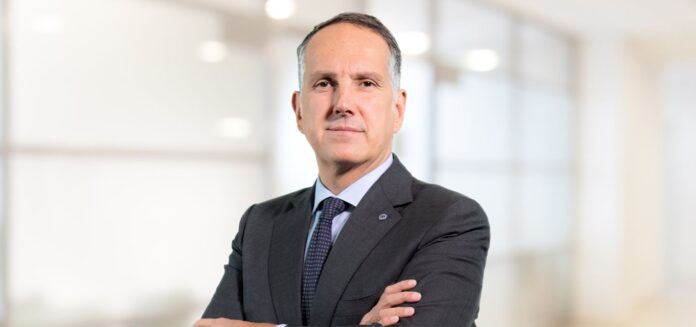Furio Pietribiasi, CEO of Mediolanum International Funds, discusses the transformation of the Irish financial sector, the burgeoning FinTech innovation landscape in Ireland and the strengthening financial and business ties between Ireland and Italy.
How have you witnessed the asset management landscape change over your 25-year career in the Irish financial services sector?
The financial services industry in Ireland boasts a relatively brief but highly successful 30-year history. Notably, there was a turning point post-Brexit in 2013 when we saw an almost fourfold increase in the industry’s size. Initially, the industry was bank focused. However, as it matured, the emphasis shifted towards the ecosystem, including consultants, custodians, and fund administrators. This foundational structure allowed companies to scale, a key reason we established ourselves in Ireland.
Evidently, there’s been an evolution in the distribution of over 4 trillion of assets, primarily in Ucits and ETFs. Much of this distribution is branching out from Ireland to other European nations. Following Brexit, many international fund giants, like Morgan Stanley, Goldman Sachs and BlackRock, have Irish entities overseeing their international distribution. As a result, teams in Ireland have had to rapidly enhance their skills, particularly in front-office roles and investment management.
The Central Bank of Ireland recognises the importance of a delegation model, pushing asset managers to prioritise the quality and seniority of their teams, and many European players prefer to delegate their portfolios to EU entities, which may sub-delegate to a third country. With margins under pressure, asset managers are reevaluating their operating models to ensure efficiency and cost-effectiveness. For many, Ireland has emerged as the preferred location.
You co-chaired the Brexit stream of the Anglo-Irish Dialogue. Could you share the significant challenges and opportunities Brexit brought to the fund management sector, particularly regarding Ireland and the UK?
It’s interesting how the Anglo-Irish dialogue has evolved. When I was asked to co-chair, Brexit hadn’t yet taken centre stage. However, it became a pivotal topic, and the regulation stream was at the forefront due to Brexit becoming the only topic discussed. It was a steep learning curve for many, but we always aimed to find solutions. Ireland’s and the EU’s disappointment was palpable when the UK, especially the City of London, decided to leave. Yet, we’ve strived to collaborate and capitalise on our shared expertise.
Post-Brexit, some competencies shifted away from the City of London. However, our focus now is on collaboration. For instance, we’re close to establishing a Memorandum of Understanding (MOU) at the European level with the UK. Topics such as sustainability, fintech and global financial stability are paramount and require collective efforts. After all, issues like global financial stability aren’t just EU or UK concerns but are of global significance.
What distinct attributes does Ireland’s FinTech innovation ecosystem possess?
Ireland, particularly Dublin, stands out because it hosts leaders from the tech and financial sectors, bridging the gap between these pivotal industries. This coexistence in a relatively small space has fostered what I define as “cross-contamination,” where skills, ideas and strategies from one industry permeate into the other. As a result, the distinctions between being a tech or a financial services company have blurred, with overlapping competencies.
Ireland’s strategic location and environment also attract native and international fintech companies. They find it efficient to operate here, allowing them to liaise with the key and largest finance industry players effortlessly. Furthermore, state agencies, Enterprise Ireland for local FinTechs and IDA for international ones, have played a pivotal role in cultivating this environment. The regulatory framework in Ireland is still evolving.
While Ireland doesn’t have a fintech sandbox yet, the Central Bank of Ireland is increasingly open to dialogue and learning. Their approach ensures that while getting licensed is rigorous, the process is steeped in mutual learning and understanding, and over time, I am convinced that such a process will also be as transparent and effective as the one for mutual funds.
Considering your role with the International Chamber of Commerce in Ireland, how do you perceive the future strengthening of financial relations between Italy and Ireland?
As a founding member of the Italian Chamber of Commerce, I emphasise the progressively strengthening ties between Italy and Ireland across numerous sectors such as financial services, pharmaceuticals, food and beverage.
The Chamber’s primary role has been to enable engagements and showcase the best of what each country has to offer. For instance, many Italian companies are now interested in tapping into the innovative environment of Ireland, hoping to learn from tech giants and innovative start-ups alike.
The aim isn’t just exposure but a genuine exchange where Italian companies can incorporate Ireland’s best practices or offer something valuable. The overarching vision is to promote sturdy collaboration between Italian and Irish entities, fostering a symbiotic relationship that enriches both nations’ industries.
© 2023 funds europe





